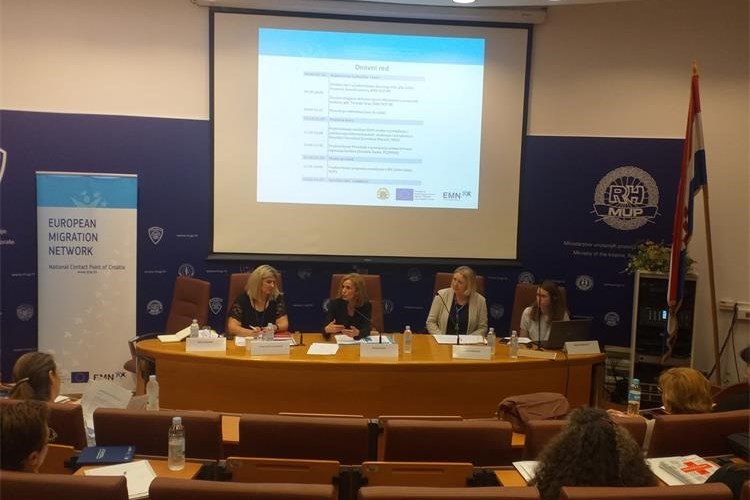- Published: 11.06.2019.
The Seventh Working Meeting of The National Migration Network
On June 6 2019 at the Ministry of the Interior of the Republic of Croatia, at the Directorate of Police, the seventh working meeting of the National Migration Network was held. It was attended by representatives of eighteen institutions and organisations.
The meeting was organised by the Ministry of Interior, which holds the role of the National Contact Point of the European Migration Network (EMN) for the Republic of Croatia since 1 January 2019. The aim of the meeting was to focus on the continuous exchange of information and activities in the implementation of support measures for refugees and applicants for international protection.
The introductory presentation was held by the State Secretary of the Ministry of the Interior, Ms Terezija Gras, reflecting on the current migratory situation in the Republic of Croatia and current and future plans and obligations of the Republic of Croatia in implementing the resettlement programme. The organisation of the EMN Conference during the Croatian Presidency of the Council of the EU was also announced.
Members of the EMN network, each provided information about the latest developements within ther areas. The results of the EMN study "Attracting and Retaining International Students and Researchers in the EU" were presented by Ms. Loredana Maravić, representative of the Ministry of Science and Education. The State Office for Human Rights and Rights of National Minorities presented the protocols on the treatment of victims of trafficking and the national Anti-trafficking plan for the period 2018 - 2021.
Finally, the Ministry of the Interior of the Republic of Croatia, presented the resettlement programme in the Republic of Croatia.
Croatian Red Cross announced that from next week in the Museum of broken Relathionships, an exhibition dedicated to refugees with a theme "What have we left behind us" will be organized.
The EMN network meeting is a good example of the combined forces of all stakeholders (state administration bodies, local communities, NGOs and humanitarian organisations) in providing daily assistance to refugees and their integration into society. There are also prominent examples of employment of refugees, learning of Croatian language, provision of kindergarten and education for children, which overall represent coordinated measures of solidarity towards refugees in the Republic of Croatia.
